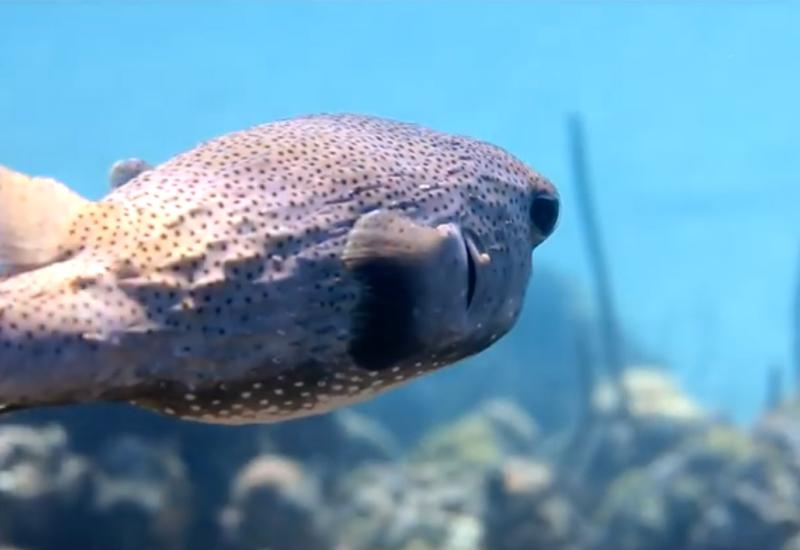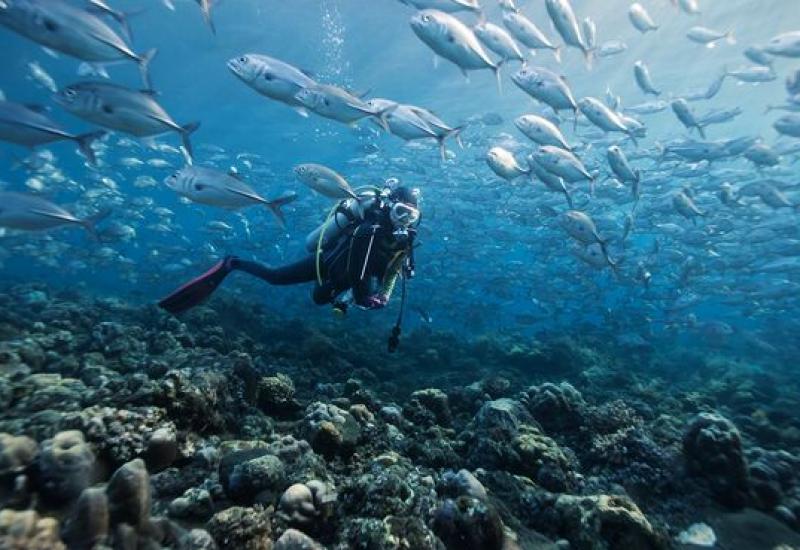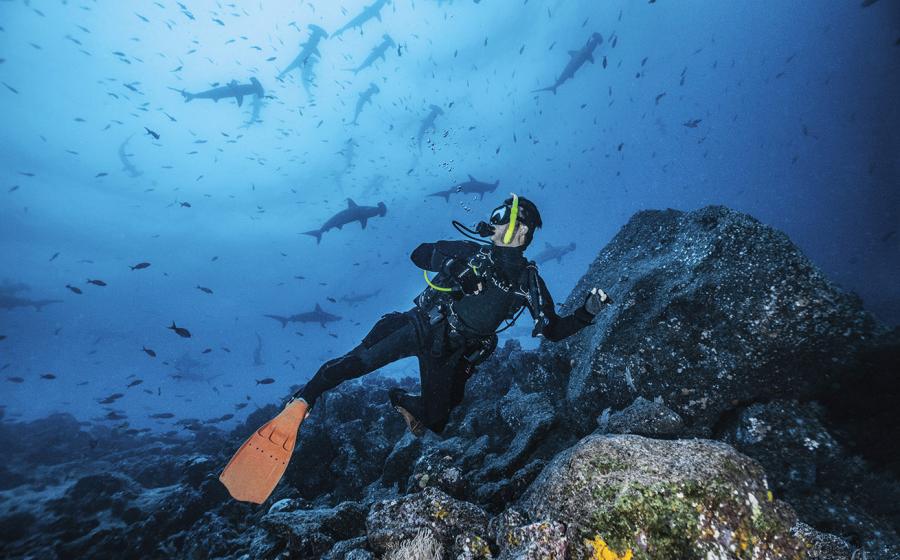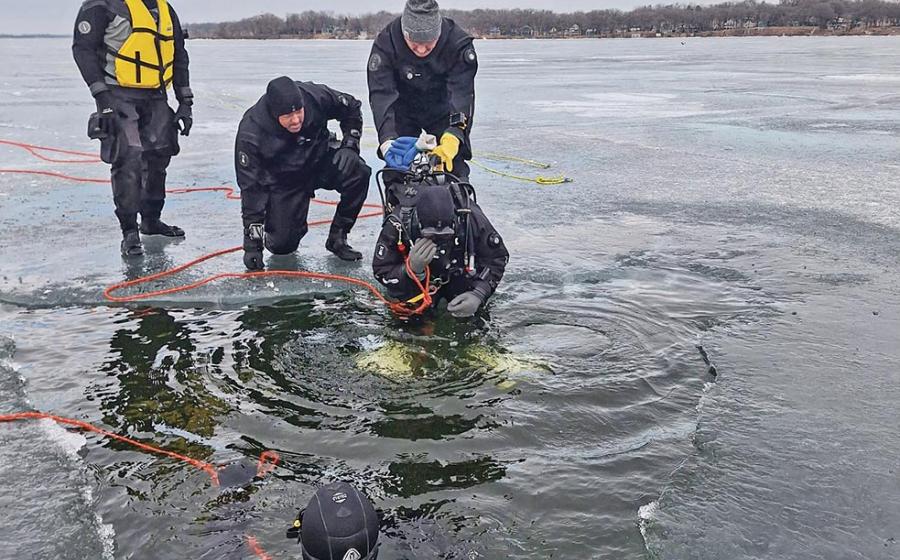How Your Body Reacts to Freediving
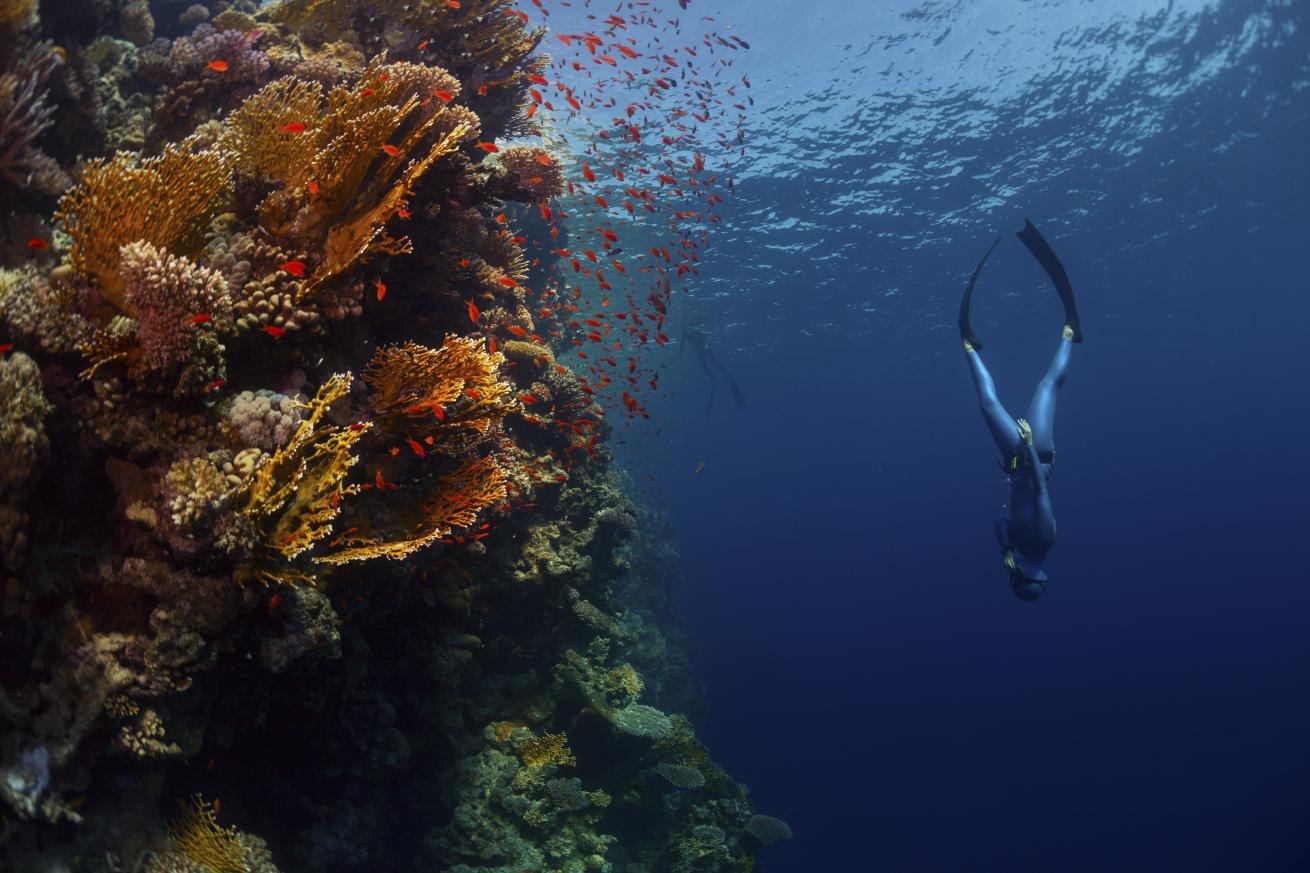
iStockphotoA freediver makes a relaxed descent
The Physiology of Freediving
Training for elite-level freediving relies on a complicated set of considerations, including genetics, mental readiness and physiological manipulations. Once you commit to undertaking the sport, it’s important to understand the physiological changes that occur during a breath-hold dive:
Lowered heart rate
A slowing of the heart rate, or bradycardia, is part of the "mammalian diving reflex" — which whales and dolphins rely on for their extended breath-hold dives. In relaxed breath-hold divers, this reduces the metabolic rate to conserve oxygen stores.
Fluid shift
Immersion in water (even at the surface) causes a fluid shift that increases the amount of blood volume in the chest, reducing the negative impact of the squeeze as gas volumes are compressed in the lungs during a vertical dive.
Prioritized blood flow
By minimizing physical effort, blood flow and gas exchange can be prioritized to the brain instead of working muscle.
Body cooling
Metabolic rate is closely tied to tissue temperature. If exercise intensity is kept low and temperatures in the peripheral tissues fall slightly, the metabolic rate is slowed. Be aware, though, that this effect is reversed if there is enough cooling for shivering to occur. Shivering can drive up the metabolic rate to five times higher than that at rest.
Adapted from the June 20-21, 2006, Breath-Hold Diving Workshop Proceedings, jointly sponsored by the Undersea Hyperbaric Medical Society and Divers Alert Network
Are you ready for freediving? Read our training column on how to get started.



